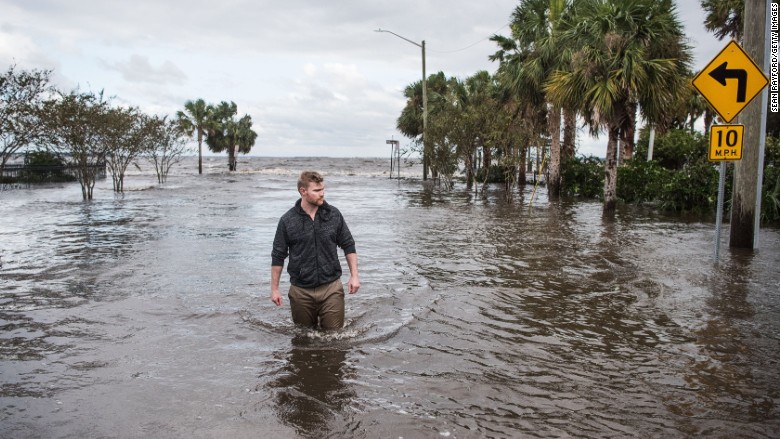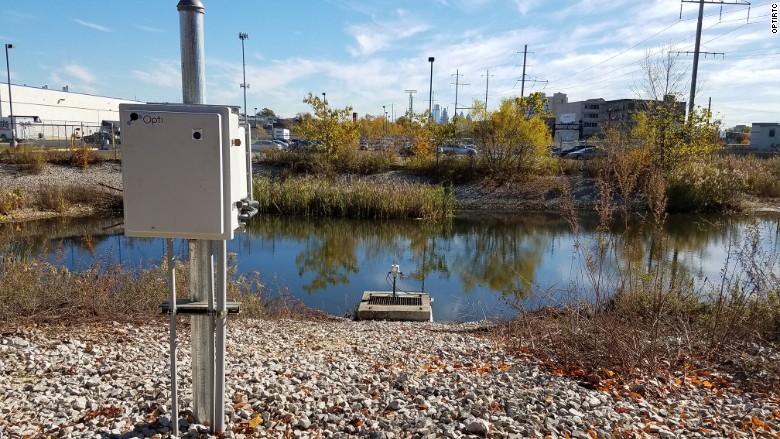
Harvey, Irma and then Maria. The Atlantic has produced a series of hurricanes this year that brought devastation and flooding.
One startup thinks it has a solution that will reduce damage caused by monster storms.
U.S.-based Opti has developed technology that helps cities predict flooding, and better control where rain water is diverted and stored.
Opti has already attracted over $11 million in funding from impact investors, who want to prevent destruction and help the environment while achieving a financial return.
"We felt like it had the potential to have a really tremendous positive impact on resilience and pollution associated with storms," said Jeff Possick, managing director at MissionPoint Partners.
Possick, whose firm is Opti's largest investor, said the tech firm also represented an "attractive investment."
How does it work?
One way that cities protect against flooding is by using retention ponds. When a storm hits, rainwater runs into these ponds, which store the water.
But major storms can bring too much water for the ponds to handle, and the resulting overflow often ends up in rivers or streams that burst their banks and cause flooding.
Opti helps prevent overflow with software that monitors weather forecasts and predicts how water levels in retention ponds should be adjusted.
As a big storm approaches, the Opti system will remotely open a discharge valve and drain ponds to make room for the expected rainfall. When the rain stops, the system will gradually release excess water in a way that doesn't overwhelm nearby rivers.

Reducing harm
The technology won't eliminate flooding after a major natural disaster, but Opti says it can help limit the damage. It has already been installed at over 130 sites across 21 states in the U.S.
Hurricane Irma recently provided a real life test when it swept through Ormond Beach, Florida, where Opti systems are installed at five interconnected lakes.
The system drained the lakes as Irma approached, leaving them able to handle the eight inches of rain brought by the storm.
Opti founder and CEO Marcus Quigley said there was no localized flooding in the area. He predicted that roads would have been inundated with water if the system had not been in place.
The benefits could multiply with scale. CFO Chris Holden said that installing Opti systems at hundreds of sites across a city would provide a more complete picture of how each should be regulated.
"We've been very successful at proactively controlling individual sites and the plan is to be able to scale that to be able to control whole watersheds," said Holden.

